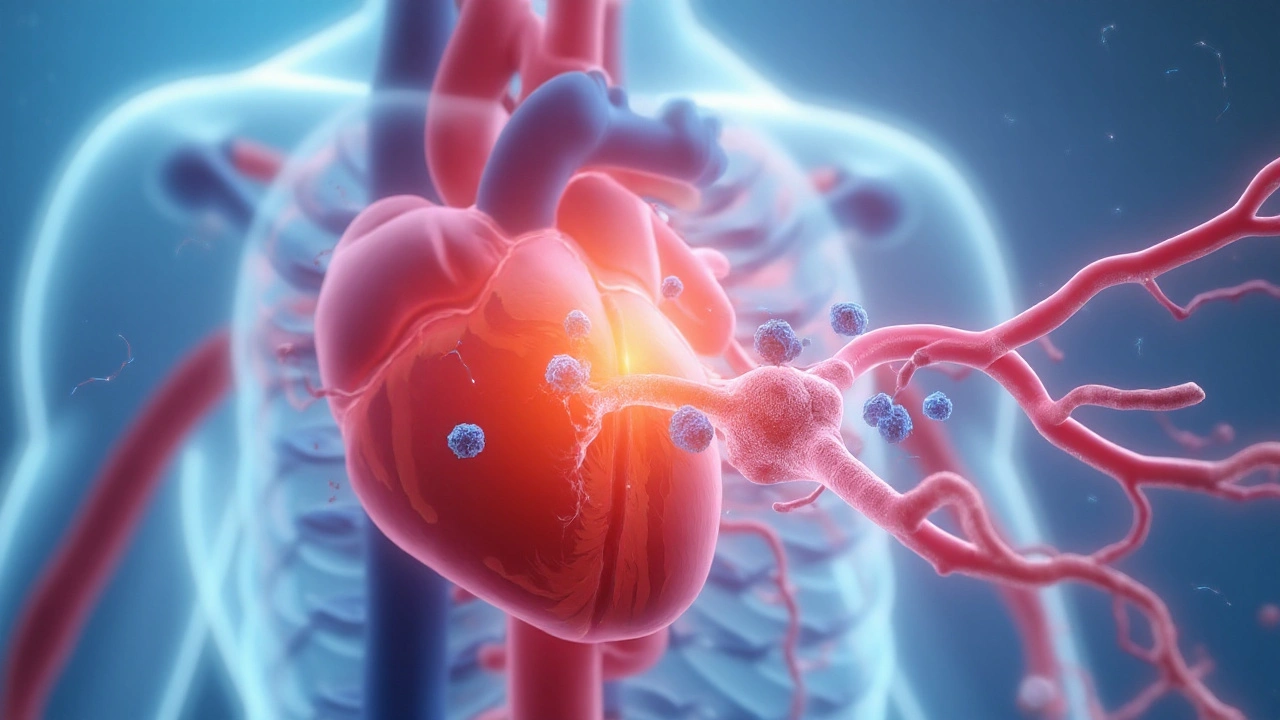ACE Inhibitors: How They Work, Who Needs Them, and What to Expect
If you’ve been told to take an ACE inhibitor, you probably wonder what it actually does. In short, it relaxes blood vessels so the heart doesn’t have to pump so hard. That makes blood pressure drop and eases the strain on a failing heart. Doctors love them because they work well, are cheap, and have a long track record.
How ACE Inhibitors Lower Blood Pressure
ACE stands for Angiotensin‑Converting Enzyme. This enzyme turns a harmless molecule into angiotensin II, a chemical that tightens blood vessels and raises blood pressure. An ACE inhibitor blocks that conversion. With less angiotensin II around, vessels stay relaxed, blood flows easier, and the heart can pump with less effort.
The effect shows up within a few hours, but the biggest drop often appears after a few days of steady dosing. Most people start with a low dose, then the doctor may increase it if the blood pressure is still high. Regular check‑ups are key because the right dose varies from person to person.
Common Side Effects and Tips to Manage Them
Most folks tolerate ACE inhibitors well, but a few side effects pop up. The most talked‑about one is a dry cough that can linger for weeks. If the cough bothers you, talk to your doctor – they might switch you to a similar drug called an ARB.
Another frequent issue is a rise in blood potassium. That’s why doctors often order a blood test after the first month. Eating a balanced diet and avoiding high‑potassium supplements can keep levels in check.
Rarely, ACE inhibitors can cause swelling of the lips, tongue, or face – a sign of an allergic reaction. If you notice any swelling or trouble breathing, seek medical help right away.
Women who are pregnant should never start an ACE inhibitor. The medication can harm the developing baby, especially in the second and third trimesters. If you become pregnant while on one, contact your doctor immediately.
Staying hydrated helps prevent dizziness when you first start the medicine. Get up slowly from sitting or lying down, and let your doctor know if you feel light‑headed.
Drug interactions matter, too. Non‑steroidal anti‑inflammatory drugs (NSAIDs) like ibuprofen can blunt the blood‑pressure‑lowering effect and strain the kidneys. If you need pain relief, ask your doctor about safer options.
Overall, ACE inhibitors are a cornerstone for treating high blood pressure, heart failure, and protecting kidneys in diabetes. By understanding how they work and what to watch for, you can use them confidently and keep your heart in good shape.

How Ramipril Helps Prevent Heart Disease: Benefits, Research & Guidelines
Discover how Ramipril reduces heart disease risk, the science behind ACE inhibition, key trial results, and practical guidance for patients and clinicians.




